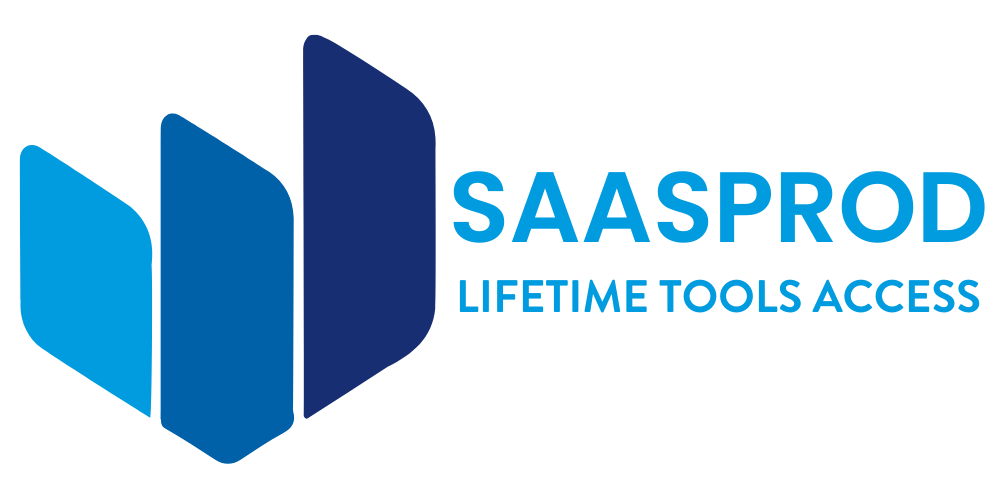Choosing the right business management software can be challenging. It’s vital for your company’s success.
Business management software helps streamline operations. It improves efficiency and supports growth. But with so many options available, it can be hard to know where to start. You need a solution that fits your unique needs. The right software can save time, reduce errors, and boost productivity.
This guide will help you understand what to look for. By the end, you’ll be better prepared to make an informed decision. Stay with us as we explore the key factors to consider in choosing the right business management software for your company.
Introduction To Business Management Software
Choosing the right business management software can boost efficiency and streamline operations. Focus on features that match your needs. Evaluate ease of use, integration capabilities, and cost.
Running a business is not easy. Managing multiple tasks can be overwhelming. Business management software can help. It streamlines operations and improves efficiency. This software integrates different business processes. It includes sales, inventory, finance, and HR. The right software can save time and reduce errors. It also provides valuable insights through data analysis.Importance Of The Right Software
Choosing the right software is crucial. It can impact your business’s success. The right software fits your specific needs. It should be easy to use and scalable. This means it can grow with your business. Good software enhances productivity. It automates repetitive tasks. This allows employees to focus on more important work. It also improves communication within the team.Common Challenges
Finding the right software can be challenging. Many options are available. Each has different features and pricing. It can be hard to choose the best fit. Integration is another common challenge. New software should work well with existing systems. Otherwise, it can cause disruptions. Training employees on new software can also be difficult. It takes time and resources. Selecting the right business management software is essential. It helps in running a smooth and efficient business. So, take your time and choose wisely. “`
Credit: scalenorth.com
Identifying Business Needs
Choosing the right business management software is crucial. It starts with identifying your business needs. This step ensures the software aligns with your goals. Understanding your needs helps avoid unnecessary features. It also ensures the software supports your operations. Let’s explore how to identify these needs.
Assessing Your Requirements
First, assess your requirements. Consider what you need from the software. Do you need project management tools? Or maybe inventory tracking? List all the features you need. This helps narrow down your options. It also ensures you choose software that fits your needs.
Understanding Your Workflow
Next, understand your workflow. Map out your current processes. Identify any pain points. This helps you see where software can help. Consider how tasks flow from start to finish. Look for software that can streamline these processes. This will save time and reduce errors.
Key Features To Look For
Choosing the right business management software can be challenging. It’s important to understand the key features that make a software ideal for your business. Focusing on essential elements ensures you get the most out of your investment. Here are some crucial features to consider:
Scalability
Your business is likely to grow. Ensure the software can grow with it. Look for features that support expansion. This includes handling more users and data. A scalable solution saves you from frequent upgrades.
User-friendliness
Complex software can slow down your team. Opt for a user-friendly interface. It should be easy to navigate. Quick onboarding and minimal training are beneficial. Your team should feel comfortable using it.
Integration Capabilities
Your business uses various tools. The new software should integrate with them. Check for compatibility with existing systems. This includes CRM, ERP, and other essential tools. Seamless integration boosts productivity and reduces errors.
Budget Considerations
Choosing the right business management software requires careful budget planning. This ensures you get the best value for your money. Consider costs, benefits, and any hidden expenses. These are critical to making an informed decision.
Cost-benefit Analysis
Start with a cost-benefit analysis. Compare the software’s price with its features. Create a simple table to list these points:
| Software | Cost | Features |
|---|---|---|
| Software A | $100/month | Inventory, Accounting, CRM |
| Software B | $150/month | Inventory, Accounting, CRM, HR |
Evaluate if the features justify the cost. Does the software save time? Improve productivity? These benefits can outweigh the initial expense.
Hidden Costs
Be aware of hidden costs. These can impact your budget significantly. Here are some common hidden costs:
- Setup fees
- Training fees
- Maintenance costs
- Upgrade charges
Ask vendors for a complete breakdown. Ensure there are no surprises later. Calculate the total cost of ownership over time. This will help you plan better.
In summary, consider all aspects of budgeting. A thorough analysis will lead to a smart investment in business management software.
Evaluating Vendor Reputation
Choosing the right business management software is crucial. One key factor is the vendor’s reputation. A good reputation often means reliable software and good customer service. Evaluating vendor reputation helps ensure you make a smart choice.
Customer Reviews
Customer reviews can be very telling. They provide insights from actual users of the software. Look for patterns in reviews. Consistent praise or complaints can indicate strengths or weaknesses. Take note of any recurring issues.
Also, consider the number of reviews. A large number of reviews can add credibility. Read reviews on various platforms for a balanced view. This helps you understand the common user experience.
Support And Training
Good support and training are essential. Check if the vendor offers comprehensive support. This can include phone support, email support, and live chat. Look for vendors that provide training resources. These can be tutorials, webinars, or user manuals.
Evaluate the quality of these resources. Well-organized and clear training materials can make a big difference. Good support can help you solve problems quickly. Proper training ensures you use the software effectively.
Security And Compliance
Selecting the right business management software ensures security and compliance. It helps protect sensitive data and meet industry standards. Businesses benefit from robust features that safeguard information.
Choosing the right business management software means ensuring your data stays safe. Security and compliance are crucial for any business. They protect your information and keep you within legal bounds. Let’s dive into key aspects like data protection and regulatory requirements.Data Protection
Data protection is a top priority. Look for software that offers strong encryption. This ensures your data remains private. Access controls are also essential. They restrict who can view and edit information. Regular software updates are a must. They fix security vulnerabilities, keeping your data secure.Regulatory Requirements
Meeting regulatory requirements is non-negotiable. Your software should comply with industry standards. This helps you avoid penalties. Look for software that supports GDPR, HIPAA, or other relevant laws. It should offer audit trails. These records show who accessed your data and when. This is vital during compliance audits. “`Testing And Trial Periods
Choosing the right business management software is crucial. Testing and trial periods play an important role. They help you understand the software. You can see if it fits your needs. They let you explore features and functionalities.
Free Trials
Many software providers offer free trials. These trials last from seven to 30 days. During this time, you can test core features. You can see if it meets your business needs. Free trials help you make an informed decision. They reduce the risk of wasting money.
Pilot Programs
Pilot programs are another option. They are more extensive than free trials. They often involve a small group of users. These users test the software in real-world scenarios. Pilot programs may last several weeks or months. They give deeper insights into the software’s performance. They help identify any issues before full implementation.

Credit: navan.com
Making The Final Decision
Choosing the right business management software is crucial. The final decision impacts your operations and productivity. Ensure you make a wise choice by considering these factors.
Involving Stakeholders
Involve key stakeholders in the decision-making process. Their input is valuable and ensures the software meets everyone’s needs.
- Gather feedback from different departments.
- Hold meetings to discuss options.
- Consider the input of those who will use the software daily.
Communicate clearly with stakeholders. Ensure everyone understands the benefits and limitations of each option.
Long-term Impact
Think about the long-term impact of your choice. The right software should grow with your business and adapt to changes.
| Factor | Consideration |
|---|---|
| Scalability | Can the software handle increased usage? |
| Integration | Will it integrate with existing systems? |
| Support | Is there adequate customer support? |
Evaluate the software’s potential to scale. Ensure it integrates well with other tools. Check the quality of customer support.
Implementation Strategies
Choosing the right business management software is crucial. But, implementing it effectively is equally important. A well-planned implementation strategy ensures smooth integration and maximizes benefits. Here are key steps to consider for a successful implementation.
Planning The Rollout
Start with a clear rollout plan. Define the implementation phases. Prioritize critical functions first. Create a timeline with specific milestones. Ensure each phase is manageable. Assign tasks to responsible team members. Communicate expectations and deadlines. A structured plan keeps the process on track. It also minimizes disruptions.
Training Employees
Training employees is essential. It boosts their confidence in using the new software. Schedule training sessions before the rollout. Use easy-to-understand materials. Provide hands-on practice opportunities. Encourage questions and feedback. Offer ongoing support and refresher courses. Well-trained employees adapt faster. They also utilize the software more effectively.

Credit: www.decisivedge.com
Monitoring And Evaluation
Choosing the right business management software involves many factors. One crucial aspect is Monitoring and Evaluation. This helps track performance and ensure continuous improvement. A good system can provide insights into various metrics. This allows businesses to make data-driven decisions.
Measuring Success
Measuring success is vital for any business. The right software should offer real-time data and analytics. These features help track progress and identify areas for improvement. Consider software that allows you to set Key Performance Indicators (KPIs). These can include:
- Sales growth
- Customer satisfaction
- Employee productivity
Tracking these KPIs helps measure the effectiveness of strategies. It also helps to compare performance over time.
Continuous Improvement
Continuous improvement is about making ongoing enhancements. The right software should support this process. Look for features that allow for regular feedback collection. This can be from both customers and employees. Implementing changes based on this feedback can lead to better outcomes.
Here are some features to look for:
- Automated reporting
- Customizable dashboards
- Integration with other tools
These features ensure that you have all necessary data at your fingertips. This enables quick decision-making and effective strategy adjustments.
| Feature | Benefit |
|---|---|
| Real-time data | Immediate insights |
| KPIs | Measure success |
| Automated reporting | Save time |
| Customizable dashboards | Personalized view |
| Feedback collection | Continuous improvement |
By focusing on monitoring and evaluation, you can make informed decisions. This ensures your business stays on the right path to success.
Frequently Asked Questions
What Is Business Management Software?
Business management software helps manage various business operations. It includes tools for planning, tracking, and analyzing business activities.
How To Select The Best Business Management Software?
Identify your business needs and goals. Compare features, pricing, and user reviews. Ensure it integrates with existing systems.
Why Is Business Management Software Important?
It streamlines operations, improves efficiency, and supports decision-making. It helps businesses grow and adapt to market changes.
What Features To Look For In Business Management Software?
Look for features like project management, finance tracking, customer relationship management, and reporting tools. Ensure it’s user-friendly.
Conclusion
Choosing the right business management software simplifies your daily tasks. It increases efficiency and boosts productivity. Evaluate your needs and goals first. Compare different software features and pricing. Read user reviews and ask for recommendations. Test the software before making a final decision.
Remember, the right choice supports your business growth and success. Investing time in research ensures long-term benefits. Choose wisely and enjoy smoother business operations.


